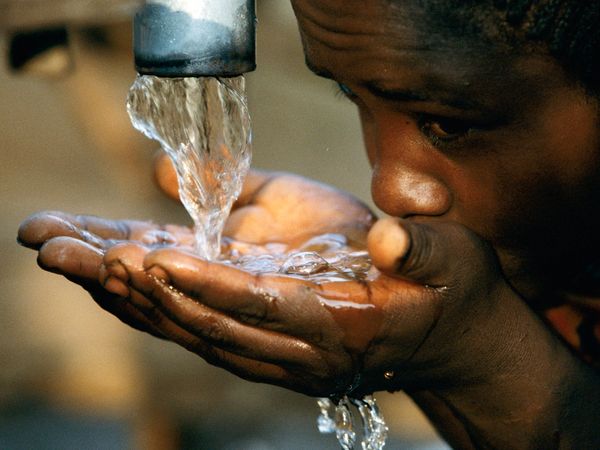Paulo Da Silva, Measurement & Analytics Local Business Line Manager – ABB Southern Africa
South Africa’s water resources are under threat with up to 35% of its clean drinking water said to be lost due to leaks in ageing infrastructure. Added to this, poor water management and wastage are also major concerns. In this context the region faces the challenge of an increasing population that is migrating in large numbers to urban areas. As more and more people need clean water for drinking, cooking and bathing, the existing infrastructure, which is inadequate with regards to capacity and in a poor state of repair, is unable to cope.
These challenges are exacerbated by changing weather conditions which put pressure on the country’s dams and ground water resources, which in turn lead to added pressure on infrastructure such as dams and drainage systems. Those working in the water industry face increasing pressure to improve water quality and energy efficiency, preserve scarce resources and minimise leakage. The solution to the problem is multi-facetted and would require the upgrading of ageing, leaking infrastructure; addressing the issue of wastage; improving recycling water facilities; and expanding the country’s water reserves. All of this would require government support and significant financial investment.
However, much needed finance to improve the infrastructure is simply not available. The government said that it would make water provision a priority and that money would be made available for this purpose, but money alone will not fix the problem. More than 500 million people globally are facing acute drought water shortages. In recent years in Cape Town South Africa, people were working around the clock to complete massive desalination plants in order to circumvent the imminent threat of its four million taps running dry.
We understand the primary causes – climate change, poverty and inequality, and lack of rational water-use policies. What we need are solutions to provide clean water for our growing global population. Water is very much a local issue. It is context-specific. Some places have enough, others too little. So, we need to take a local approach to water. There are three main challenges to address that related to cost efficiences, sufficient data to make decisions and appreciate of what by stakeholders.
Many of the solutions that companies provide are high-cost and high-tech, which their customers are not always willing to invest in. We therefore need more low-cost solutions for those countries and regions where affordability is a key issue. Secondly, often there is insufficient information for companies to make good decisions on which solutions to implement. For instance, they often lack data on the complexity and variability of the effluent their facilities produce and how a change in product mix impacts the effluent. This limits thecompanies ability to select the best solution.
Underpinning both points is a lack of appreciation of the value of water by stakeholders, including governments, industry and communities. Getting these stakeholders to understand the true cost of water and the risks that arise from its depletion is the key issue going forward, both locally and globally. At ABB, we deliver integrated and secure digital systems, services and solutions to automate and optimize the performance of water facilities and conventional and renewable power plants. Water brought to many cities at great cost is wasted by leaky pipes: 20 percent in the average city, 60 percent in Istanbul. In Vietnam, 30 percent of Ho Chi Minh City’s freshwater supply has historically been lost to leaks and other infrastructure problems, but a current IIoT project involving ABB, will reduce non-revenue water to 10 percent by 2020 by digitally monitoring the water network and instituting repairs in near-real time.
ABB control technologies offer high operational security, maximum availability, remote maintenance possibility and an easy and quick way to upgrade to a new generation of control systems. Many solutions exist, and examples can be found where countries use modern technology, supported by professional, well-trained and skilled personnel, to meet the challenge. India, for example, uses advanced technology to meter the water flowing through its pipelines and to monitor and report leaks. Data from the monitors is analysed at centralised control centres from where suitably trained personnel can be dispatched to attend to problems.
The way forward is for South Africa to change its water management systems so that, with increased funding, water infrastructure projects can be delivered. Digitalization enables water companies to manage their assets more efficiently and integrate their plants and networks with other municipal services to create a smart city that uses resources optimally to improve residents’ wellbeing. ABB solutions help water companies become smart – through digitalization, advanced SCADA and distributed control systems, measurement and analytics, communication systems, energy efficiency, pump optimization, leak detection and event management, and predictive maintenance.

